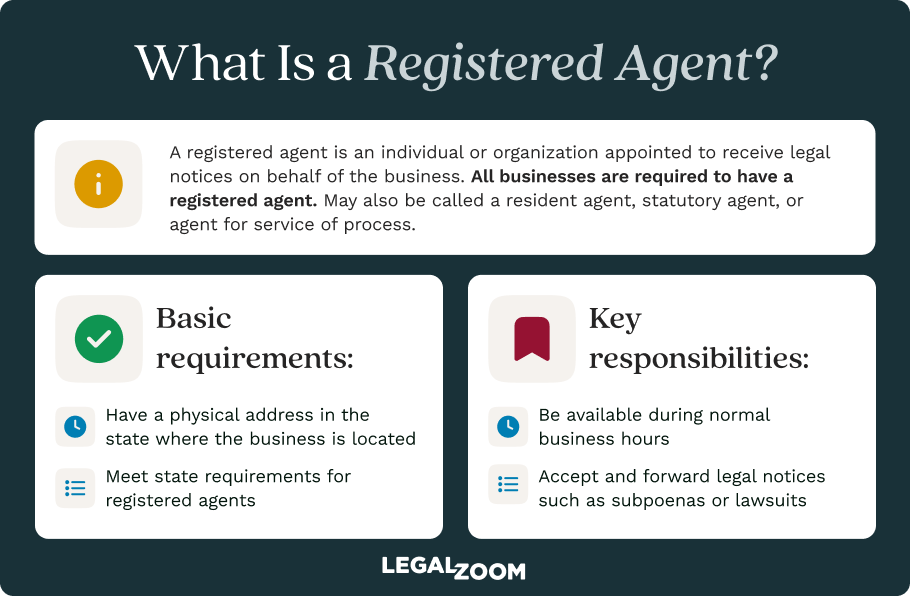Forming a limited liability company in Oregon is a smart move for small business owners looking for flexibility, personal liability protection, and potential tax advantages. One thing that sets Oregon apart is that it doesn’t have a state sales tax, which can allow businesses to lower their prices and attract more customers.
Before you jump in, learn more about the steps involved, annual filing requirements, and what to do after you complete the Oregon LLC registration process.
How to form an Oregon LLC in 6 steps
Starting an LLC in Oregon is straightforward and follows similar steps as other states. However, there are few things you should know about Oregon in particular.
Step 1: Choose your business name
Starting a business in Oregon is exciting, and choosing your name can be fun. As you brainstorm, remember that your business name must be unique. If the name on your Oregon LLC paperwork is too similar to an existing business, your application will be denied, wasting time and money.
Your business name also needs to be compliant with Oregon’s naming rules. The law requires you to include the words “Limited Liability Company” or the abbreviation “LLC,” with or without periods, to indicate your business structure. Your name also has to be in English and can only use standard or Roman numerals.
Once you have a name in mind, check to see if it’s available by doing an Oregon LLC search. You can find a database of registered business entity names on the Oregon Secretary of State website. If you find a name you like, but you’re not quite ready to form your LLC, you can reserve it for 120 days for a $100 fee. This will hold the business name while you finalize other parts of your business plan.
Step 2: Identify a registered agent
Your registered agent is responsible for receiving legal documents, such as legal notices or official correspondence, on behalf of your LLC. Every business entity must have a registered agent on file with the Oregon Secretary of State. They must have a physical address in Oregon and be available during normal business hours to accept documents. LLC owners can be their own registered agent, appoint someone they know, or use registered agent services.
To appoint a registered agent, you simply include their information in your articles of organization. If you ever need to change your registered agent, you’ll file an Information Change Form with the Oregon Secretary of State. There’s a $50 fee for making this change.

Step 3: File articles of organization
The next step is to file articles of organization with the Oregon Secretary of State Corporation Division. This document officially creates your LLC and includes essential details:
- Your LLC’s name, physical street address, and mailing address
- The duration of your LLC, which may be perpetual
- The name and address of your registered agent
- The name and address of each LLC organizer (the person(s) filing the paperwork)
- Whether the LLC will be managed by its members or by managers
- The names and addresses of the LLC owners and managers
- Whether the business provides a licensed professional service and a description
You can file online through the Secretary of State’s website, or you can mail in a paper form. Either way, the filing fee is $100. Filing online is usually faster, with a processing time of less than a day, while paper submissions can take a couple of weeks. Once approved, the Secretary of State will send you a certificate confirming your LLC formation.
Step 4: Create an LLC operating agreement
LLC owners in Oregon aren’t required to have an operating agreement, but creating one is recommended. This is a legal document that outlines the business structure, management roles, and operational procedures for your LLC. It’s especially useful if your LLC has multiple members and you want to help prevent disputes. Having a clear operating agreement can also make it easier to work with banks, investors, and other third parties.
You can write it yourself, use an Oregon LLC operating agreement template, or use a service to create a customized operating agreement. It should cover key areas where disputes are likely to arise:
- Who owns what percentage of the LLC
- How profits, losses, and business assets are shared
- The process for adding or removing members
- Decision-making protocols

Step 5: Get an EIN and open a business bank account
Most businesses, including Oregon LLCs, will need an employer identification number (EIN), which is like a Social Security number for your business. The Internal Revenue Service (IRS) uses your EIN to identify your LLC for federal tax purposes. You’ll need an EIN if you plan to hire employees, and LLCs with multiple members need it to open a business bank account.
Applying for an Employer Identification Number is free and easy to do through the IRS website. Once you have your EIN, you can use it to open a separate business bank account. (It’s important to separate your personal and business finances to maintain the liability protection provided by your LLC status.) Most businesses will need an EIN, articles of organization, and possibly an operating agreement to open a business account.
Step 6: Register for state taxes and business licenses
Although Oregon doesn’t have a state sales tax, LLCs might still need to comply with other tax obligations. For example, if your LLC will have employees, you’ll need to get a business identification number (BIN) from the Department of Revenue. Then, you’ll register to pay unemployment insurance taxes through the state’s Frances Online portal. You’ll also need to withhold and pay employee income taxes.
When it comes to revenue, your Oregon LLC will be taxed as a “pass-through” entity. This means you’ll report the LLC’s income and pay the taxes on your personal tax return. You might also have to pay local taxes and fees. If your business operates in Portland, for example, you might have to pay the Portland Business License Tax. Make sure to research whether your city or county has additional taxes.
There is no general Oregon business license, but you might need one depending on what you do. Quite a few business activities require special permits or business licenses, like health care, food service, construction, and alcohol and firearm sales. Check the state’s searchable directory to see if your business will need a license.
Free Oregon Business Name Check
Use our free name check tool to search the Oregon Secretary of State database and see if your business name is available.
By clicking "Check Availability," I agree to LegalZoom's Terms of Use. This search is a preliminary check of state databases and does not include variations or trademarks. Results do not guarantee name availability or compliance with legal requirements.
What to do after forming your Oregon LLC
Knowing how to start an LLC in Oregon is important, but you also need to know what to do next. There are a few more things to do that can help your business thrive.
Register a domain name
Even if you don’t plan to launch a website right away or won’t conduct business online, it’s a good idea to register a domain name that matches your business name. Your domain name is your website address—something every business needs in the modern world. Services like GoDaddy or Namecheap make it easy to search for and register available domain names.
Obtain a Certificate of Existence
A Certificate of Existence, which is sometimes called a Certificate of Good Standing in other states, verifies that your Oregon LLC is legally registered and in compliance with state requirements. You won’t always need it, but banks, lenders, and investors might request it in certain situations. You can obtain this certificate from the Oregon Secretary of State for a $10 filing fee.
Consider a foreign LLC
Small businesses always want to grow. If your business plans to expand to other states, Oregon LLC registration won’t be enough. You’ll need to register as a foreign LLC in each new state where you conduct business. This usually involves filing paperwork and paying fees to the new state. Be sure to research the registration requirements in each new state.
LegalZoom helps you handle every step—from choosing a business name to filing paperwork with your state.

Annual filing requirements for Oregon LLCs
Every business entity in Oregon is required to file an annual report with the Secretary of State so that they can make sure your information is up to date, including your address and registered agent. The filing fee for the annual report is $100, and you must file it by the anniversary of your LLC’s formation date each year.
You can file the annual report online through the Oregon Secretary of State’s website. They’ll send you a reminder 45 days before it’s due. Failure to file on time can result in late fees, and if your report is very overdue, your LLC could be dissolved.
The cost of forming an LLC in Oregon
Starting a limited liability company in Oregon costs at least $100—that’s the fee to file your articles of organization with the Secretary of State. Your costs may be higher if you choose other services or need a business license. Here’s the breakdown:
- Formation cost. $100 to file the articles of organization
- Business name reservation. $100 (if you choose to reserve your name for 120 days prior to formally starting your LLC)
- Certificate of Existence. $10
- Business licenses. Varies by business activity and municipality
After formation, you’ll have to pay $100 per year to file your annual report. You might also use registered agent services or other professional services that will add to your costs.

How to start your Oregon LLC with LegalZoom
Oregon encourages small businesses to form LLCs by making the process easy. But errors or missing information can still delay the process. That’s why using a service to start an LLC can be helpful. You just provide basic details about your Oregon LLC, and we’ll fill out and file your articles of organization. When your LLC is approved, we’ll send your formation documents. We can also help you with your operating agreement, annual reports, and more.
Start an LLC in Any State
FAQs
How long does it take to form an LLC in Oregon?
The processing time for forming a limited liability company in Oregon depends on how you file. If you file online through the Secretary of State’s website, the process usually takes one business day. For paper filings, it can take up to two weeks depending on mail and processing times.
Does an Oregon LLC need a business license?
A limited liability company in Oregon won’t need a general state business license, but some business activities require specific licenses or permits. Depending on their activities, certain industries require these to operate legally. Common examples include restaurants, child care centers, construction businesses, real estate, and alcohol sales. Verify what you need with the state and local government.
How do I correct LLC formation errors in Oregon?
If you discover an error in your LLC’s articles of organization or other filings, you can correct it by submitting an amendment to the Oregon Secretary of State. This form allows you to update information such as your business name, registered agent, or address. It’s also the same form you use to dissolve an LLC in Oregon.
How much tax does an LLC pay in Oregon?
Oregon LLCs typically don’t pay corporate income taxes. They’re classified as pass-through entities, which means the profits or losses pass to the owners, who report them on their personal tax returns. Personal income tax rates in Oregon range from 4.75% to 9.9%. LLCs with employees, in certain areas, or who engage in certain activities may be subject to other tax obligations.
Rudri Bhatt Patel contributed to this article.




